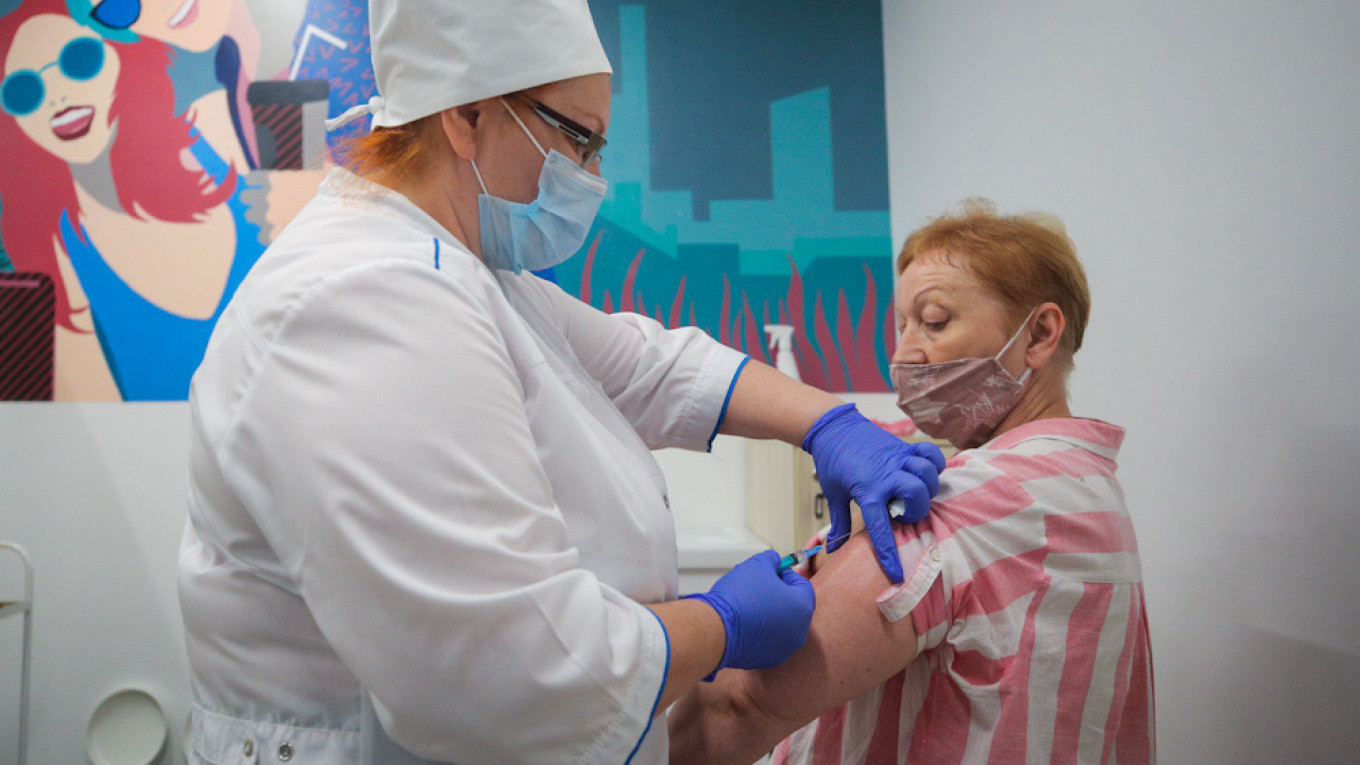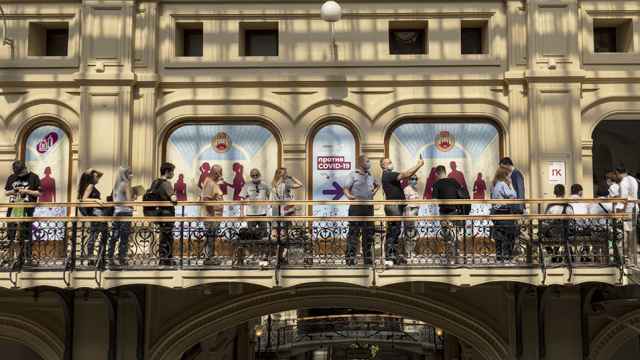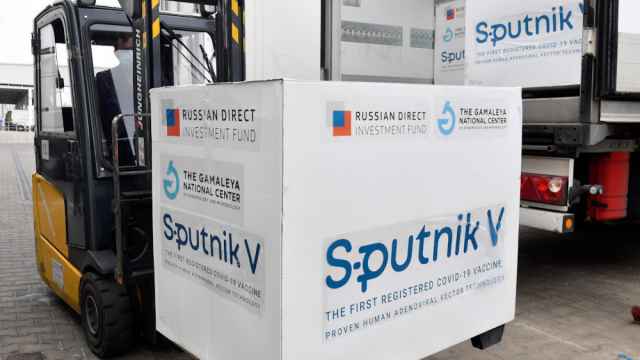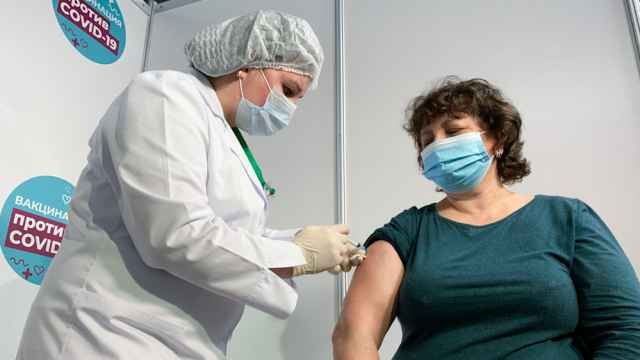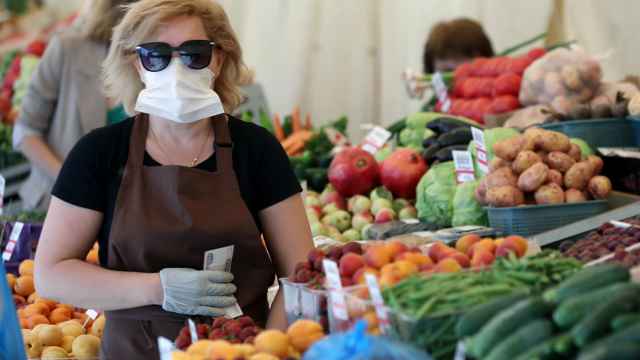On Monday morning, the Sputnik V Twitter account boasted that the Aerolíneas airline had just made its 19th vaccine transport flight out of Moscow, bringing the total number of Gamaleya Institute-developed doses shipped to Argentina up to 9.5 million. It’s been a point of pride for the Russian media to trumpet deliveries of Sputnik V to countries across South America, Asia, the Middle East, and sub-Saharan Africa.
But now that Russia’s best-case scenario has its own citizens using up much more of its precious vaccine supply, its vaccine diplomacy strategy may be forced into a dramatic change of course.
If there aren’t enough doses to go around at home, how can Russia keep sending them to other places? Already, many more countries have authorized Sputnik V than have actually received it. Failure to deliver even further carries enormous reputational risk.
Russia’s covid-19 vaccine situation has been unique when compared with the still-desperate need in most of the rest of the world. Until very recently, vaccine hesitancy and refusal translated into unused supply virtually everywhere in the country.
Not surprisingly, low vaccine coverage has combined with lax enforcement of mask mandates and seemingly no restrictions on public gatherings (with the notable exception of opposition protests) to allow the Delta variant to grab hold with a vengeance. Over the last few weeks, case numbers have skyrocketed, hospitals have re-opened previously shuttered covid-19 wards, and the daily reported number of deaths has now surpassed any prior peak.
The city of Moscow and a growing number of other regions have responded with tough new policies to get the pandemic quickly under control: a requirement for the majority of service industry personnel to be vaccinated, proof-of-vaccination gatekeeping at cafés and restaurants, and others.
Despite evidence of fake vaccination certificates, counterfeit QR codes, and other tactics clever Muscovites are using to get around the new rules, it looks like a significant number of Russians have been coaxed off the fence. Once-empty vaccination clinics now have long lines of customers. The first-dose vaccination rate country-wide has jumped from 10-11% two weeks ago to almost 16% now, and it’s still climbing.
With stunning rapidity, Russia is flipping the switch. In more than a handful of regions, vaccine demand now exceeds supply. Both government and pharmaceutical industry spokesmen have offered assurances that current shortfalls represent mere logistical tangles, and that it won’t take long to get vials to where they’re needed.
But while it’s practically impossible to run exact numbers, given the lack of transparency around vaccination rates and production rollout, back-of-the-envelope calculations indicate that shortages are likely to persist. Russia already had to import some Sputnik V from South Korea in December 2020.
It’s been more challenging than anyone expected to make the jump from laboratory to factory, make or buy the necessary equipment and ingredients, and most of all, hire enough qualified personnel to staff production lines.
Even now, production capacity constraints are limiting Russia’s ability to export. In much the same way that it’s jumped the gun on so much else about its vaccines — regulatory approval prior to large-scale clinical trials, consistent overclaims about their efficacy coupled with unfounded bashing of Western alternatives — it also aggressively marketed its product to other countries before the goods were actually in hand.
Argentina and Mexico have been waiting in vain for deliveries of the promised second dose of Sputnik V — whose increased efficacy through the use of two different adenovirus vectors has served as one of its main selling points — as production of the second dose has proven considerably more challenging to scale up than the first. Earlier this week, the Guatemalan health minister called in his country’s chips, asking Russia to return most of the $80 million that was paid for eight million doses; only 150,000 have been received. Argentina may be on the verge of giving up and replacing Sputnik dose #2 with AstraZeneca or China’s CanSino.
The Russian Direct Investment Fund has been working with partners in India and a handful of other countries to initiate and ramp up Sputnik V production outside Russia. Most of those facilities will come on line later this year and into 2022, but the need is acute right now.
Russia’s vaccine diplomacy strategy has always been predicated on a first-mover advantage. It’s taken every opportunity to contrast its own quickly constructed image as a magnanimous vaccine donor with the West’s apparent selfishness and slowness to act. It’s vocally positioned itself on the right side of this global haves-versus-have-nots divide: not only did we develop the first vaccine to protect against covid-19, we’re offering to share it with everyone who asks.
The potential gains of this strategy have not been insignificant. In the words of the Council on Foreign Relations’ Tom Bollyky, “I don’t think the US and EU public fully appreciate how angry the rest of the world is about being left without adequate access to vaccines.” It would be quite a shift from the role of potential savior — and there are indeed many grateful Sputnik V recipients around the world — to one of the targets of that anger.
What will the damage be to Russia’s credibility and moral authority if it can’t or won’t make good on its initial pledge to deliver “the vaccine for all mankind”?
It may well be the case that vaccine hesitancy and refusal will put a hard ceiling on Russia’s vaccination numbers at home before supplies headed overseas are constrained. But if it wants to bring the pandemic under control within its own borders, Russia may be facing hard choices that could erase the diplomatic gains realized through earlier Sputnik V promises and deliveries. The loss of face and good will could be considerable.
A Message from The Moscow Times:
Dear readers,
We are facing unprecedented challenges. Russia's Prosecutor General's Office has designated The Moscow Times as an "undesirable" organization, criminalizing our work and putting our staff at risk of prosecution. This follows our earlier unjust labeling as a "foreign agent."
These actions are direct attempts to silence independent journalism in Russia. The authorities claim our work "discredits the decisions of the Russian leadership." We see things differently: we strive to provide accurate, unbiased reporting on Russia.
We, the journalists of The Moscow Times, refuse to be silenced. But to continue our work, we need your help.
Your support, no matter how small, makes a world of difference. If you can, please support us monthly starting from just $2. It's quick to set up, and every contribution makes a significant impact.
By supporting The Moscow Times, you're defending open, independent journalism in the face of repression. Thank you for standing with us.
Remind me later.



